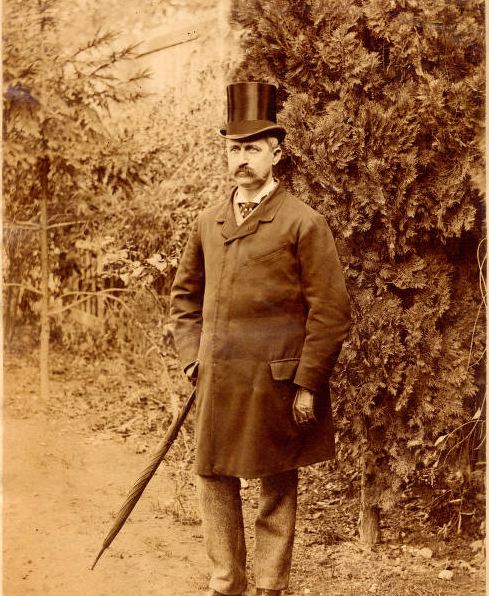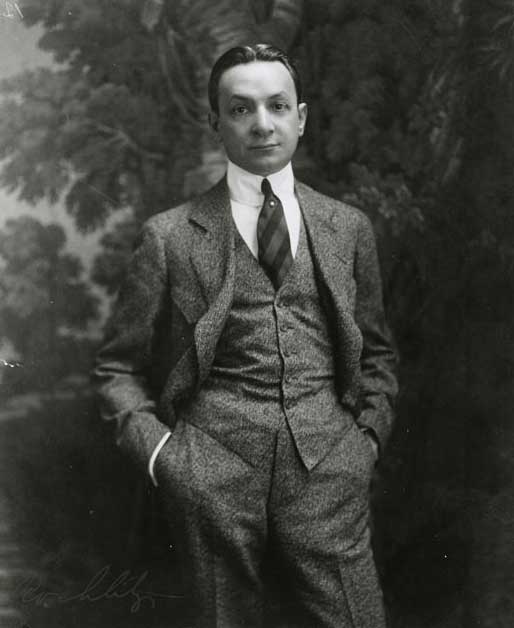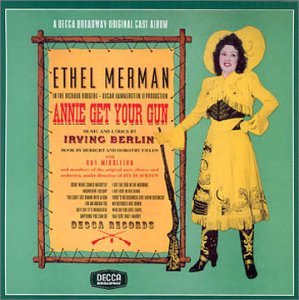
Nate Salsbury (above) started out in show business just after the Civil War as a singer, eventually forming a vocal group called The Troubadours, who performed in variety shows. Later he started writing full-length plays to feature his troupe. In 1879 he wrote a play called The Brook, a story of ordinary people at a picnic who entertain each other with songs and comic turns. It's considered to be a forerunner of the American musical comedy.
In 1882 he suggested to William F. (Buffalo Bill) Cody that they create an arena show about the wild west, an idea that wasn't new and that Buffalo Bill himself had been thinking about. When Salsbury said he wasn't ready to plunge into the venture immediately, Bill put together a show anyway. Its first season wasn't a flop but wasn't a big hit, either, and Bill convinced Salsbury to sign on as manager.
Together they created Buffalo Bill's Wild West, one of the great success stories of American show business and a cultural influence of almost immeasurable proportions. To Bill and Nate, however, it was just a show. Bill saw nothing odd about asking a theatrical impresario with stage experience to run it, Nate saw nothing odd about applying skills learned in playhouses to an outdoor spectacle involving horses and buffaloes.

In 1893 Buffalo Bill's Wild West had a wildly successful run at an arena set up just outside the grounds of the world's fair in Chicago. A sixteen year-old kid named Florenz Ziegfeld (above) went to see it and was so enchanted that he ran off with the show when it left town, staying with it for six months until his father tracked him down and dragged him back home.
After years as a traveling impresario managing variety acts, Ziegfeld became a Broadway producer, inventing the Ziegfeld Follies, a kind of super-sized vaudeville show that featured headliners only, with more than a little burlesque thrown in for good measure, in the shapely and barely clad forms of the “Ziegfeld Girls”, chorines who did little more that parade around the stage looking beautiful.
The Wild West which had lured Salsbury away from Broadway set Ziegfeld off on a road that led him to prominence there — and eventually right back to a rendezvous with the destiny of the American musical, which Salsbury had helped inaugurate.
In 1927, Ziegfeld produced Kern and Hammerstein's Show Boat (above), perhaps the most important and influential production in the history of the American musical stage. Just about twenty years later, Irving Berlin, as part of the tradition of integrated book musicals that Show Boat inspired, collaborated on Annie Get Your Gun, a Broadway musical about Annie Oakley and her career with Buffalo Bill's Wild West.

Ziegfeld wouldn't have seen anything odd about this, any more than Salsbury, Cody, Kern, Hammerstein or Berlin would have. In Annie Get Your Gun, Buffalo Bill addresses a song to Annie that has become a show business anthem — “There's no business,” he sings to her, “like show business”.
Today, under the influence of academic specialization and the division of art into high-brow and low-brow categories, we see a great difference between “the Broadway stage” and, say, a circus, but earlier ages weren't bothered with such distinctions. They knew that — to paraphrase Rudyard Kipling — “All show business is one, man! One!”

Great point about how it's all show business. I've done research recently on Annie Oakley for my new CD out in July 2010, and I couldn't even get through the first 10 minutes of the movie 'Annie Get Your Gun' with Betty Hutton. It just doesn't seem fair to the real Annie who's life was a far cry from that interpretation. But then again, at least it brings her back into the 20th and 21st century for further inquiry. Thanks for the post.